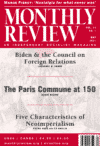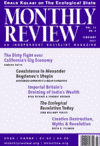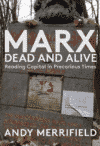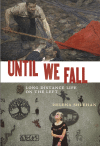Most westerners glimpsed the breakup of the Soviet Union at a great distance, through a highly distorted lens which equated the expansion of capitalism with the rise of global democracy. But there were those, like Helena Sheehan, who watched more keenly and saw a world turning upside down. In her new autobiographical history from below, Until We Fall, Sheehan shares what she witnessed first-hand and close-up, as hopes were raised by glasnost and perestroika, only to be swept away in the bitter and brutal counterrevolutions that followed.
In Until We

A unique historical account of poor peoples’ self-defence strategies in the face of the plunder of their lands and labor
For five centuries, the development of capitalism has been inextricably connected to the expropriation of working people from the land they depended on for subsistence. Through ruling class assaults known as enclosures or clearances, shared common land became privately-owned capital, and peasant farmers became propertyless laborers who could only survive by working for the owners of land or capital.
As Ian Angus documents in The War Against the Commons, mass opposition to dispossession has never ceased. His dramatic account provides new insights into an opposition that ranged

In 1884, important figures in England’s budding socialist movement broke with the Social Democratic Federation over concealed jingoism and strong support for the British Empire. A similar division within the broad left on the issue of imperialism is threatening to reappear in our time. | more…

We remember our good friend and comrade, Leo Panitch, one of the great socialist intellectuals of all time, who died on December 19, 2020, age 75. | more…

Colonialism before the First World War
The Western European powers appropriated economic surplus from their colonies, materially and substantially aiding their own industrial transition from the eighteenth century onward, as well as the diffusion of capitalism to the regions of new European settlement. In the case of India, the concept of drain is based on the fact that a substantial part of its earnings was never permitted to accrue to the country; it was instead appropriated by the ruling power: Britain. | more…

A historical-materialist analysis of the relationship between disability, the body, welfare, and capitalism is needed in order to further develop a Marxist understanding of disability. In this framework, we can see how the British welfare state, given recent changes to British disability policy, determines who is able-bodied and who is disabled, with this evaluation made in regard to the needs of monopoly capitalism. | more…

Karl Marx saw the ruling class as a sorcerer, no longer able to control the ominous powers it has summoned from the netherworld. Today, in an age spawning the likes of Donald Trump and Boris Johnson, our society has never before been governed by so many conjuring tricks, with collusions and conspiracies, fake news and endless sleights of the economic and political hand. And yet, contends Andy Merrifield, as our modern lives become ever more mist-enveloped, the works of Marx can help us penetrate the fog. In Marx, Dead and Alive—a book that begins and ends beside Marx’s recently violated London graveside—Merrifield makes a spirited case for a critical thinker who can still offer people a route toward personal and social authenticity. | more…

In 1952, the West African nation of Ghana, recently having freed itself from British imperialism, set out on a project of radical economic reconstruction unmatched anywhere on the continent in scope and ambition. Having attained political independence with the creation of a sovereign parliament and executive office, the Convention People’s Party under the leadership of Kwame Nkrumah drew up extensive plans for ensuring the conditions necessary for real, not just on-paper, independence. | more…








